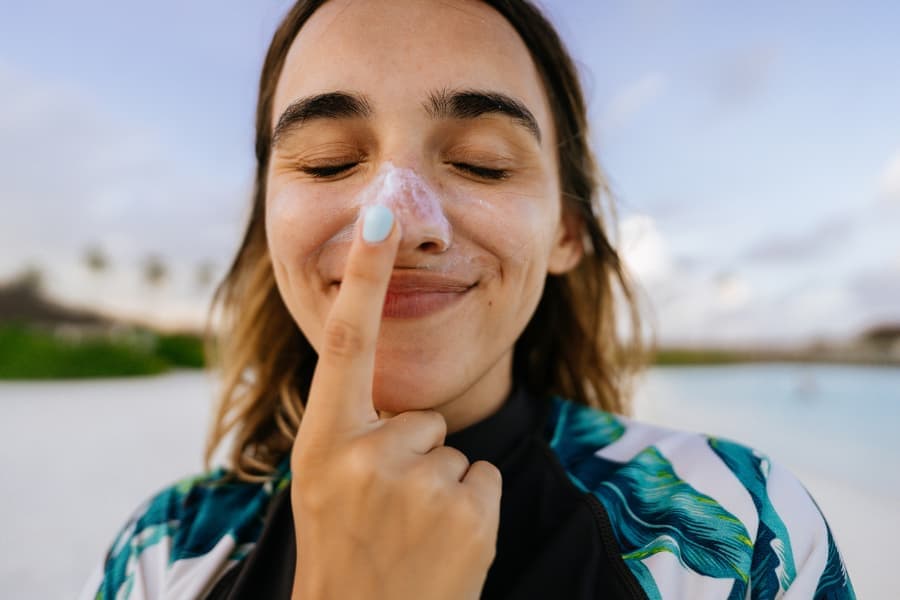Cancer is a group of genetic diseases that occur when cells divide uncontrollably and spread into nearby tissues or other organs. Cancer can develop in almost any organ or tissue, and there are many different types of cancer. Estimates predict there will be over 2 million new cases of cancer diagnosed in the United States, and more than 600,000 people will die from the disease per year.
Many experts believe some types of cancers can be prevented through healthy habits and positive lifestyle choices. Here, Richmond University Medical Center’s oncology team in Staten Island, New York, lays out changes one can make to their lifestyle to lower their risk of cancer.
Quit Smoking and Stay Away from Tobacco
Tobacco use and smoking have been linked to the development of several types of cancer. Evidence shows that tobacco is associated with 30% of all cancer-related deaths. Smoking can lead to the development of cancer in the following parts of the body:
- Lungs
- Mouth
- Throat
- Pancreas
- Bladder
- Cervix
- Kidney
Although smoking gets the most attention, no form of tobacco products are safe – they are all accompanied by inherent risks. This includes cigarettes, e-cigarettes, cigars, chewing tobacco, and hookahs.
Choosing to stay away from tobacco or deciding to quit using it is an important lifestyle choice for preventing cancer. Studies show after 10 years of quitting, the risk of lung cancer is reduced by 30–50% compared to those who continue to smoke.
Get Regular Exercise and Maintain a Healthy Weight
Regular physical activity and maintaining a healthy weight are crucial to helping prevent certain types of cancers. A body carrying excess weight will produce and circulate higher levels of estrogen and insulin, two hormones that are known to expedite cancer growth. Individuals at a healthy weight are at a lower risk of developing the following types of cancer:
While performing any amount of physical activity benefits health, experts recommend striving for at least 150 minutes a week of moderate exercise or 75 minutes of weekly intense training. Research shows that a combination of both is ideal. A study found that people who were most physically active had a 10–20% lower risk of developing cancer.
Consume a Nutritious Diet
While consuming healthy foods can not guarantee cancer prevention, it can help to reduce the risk. Eating plenty of fruits and vegetables and limiting consumption of processed meats are healthy lifestyle choices that can limit a person’s risk of developing cancer.
Drinking alcohol in moderation, if at all, is also a healthy lifestyle choice that can impact the likelihood of cancer development. Because alcohol increases the risk of various types of cancer, including cancer of the breast, colon, lung, kidney, and liver, guidelines from the American Cancer Society state it is best to avoid alcohol altogether. The guidelines suggest men should have no more than two drinks per day and women should limit themselves to one drink per day.
Limit Sun Exposure
Skin cancer is one of the most common types of cancer and one of the most preventable, according to the Skin Cancer Foundation. Individuals can reduce their risk of developing skin cancer by engaging in the following best practices:
- Use sunscreen with an SPF of at least 30, even on cloudy days, and reapply every two hours.
- Stay out of the sun when its rays are strongest, typically between 10 a.m. and 4 p.m.
- Remain in the shade as much as possible when outside.
- Wear clothing that offers protection from the sun, including a head cover and sunglasses.
- Refrain from using tanning beds or sunlamps.
Get Routine Screenings
Undergoing regular cancer screenings can increase a person’s chance of finding the disease in its earliest stages. The earlier a cancer is identified, the more likely it can be treated and result in a positive outcome.
Cancer screenings are also beneficial for identifying common characteristics of cancers. This enables patients to take appropriate action to help prevent development. How often a person should be screened depends on several variables, such as the type of cancer, their medical history, and lifestyle choices.
Learn More About Cancer Lifestyle Risk Factors
Cancer is a serious diagnosis that can limit a person’s quality of life and lead to devastating outcomes. Therefore, prevention is critical. Patients can reduce their likelihood of developing cancer by engaging in healthy lifestyle choices.
At Richmond University Medical Center, our team of board-certified oncologists specializes in cancer treatment and prevention. We aim to educate patients on how to avoid cancer by outlining known risk factors and ways to promote healthy living. In addition, we offer effective personalized treatment plans that include non-invasive and invasive approaches. Those in Staten Island, who are wishing to learn more about cancer prevention and our comprehensive offerings, can contact us today to speak with a team member or schedule an apportionment to meet in person.




